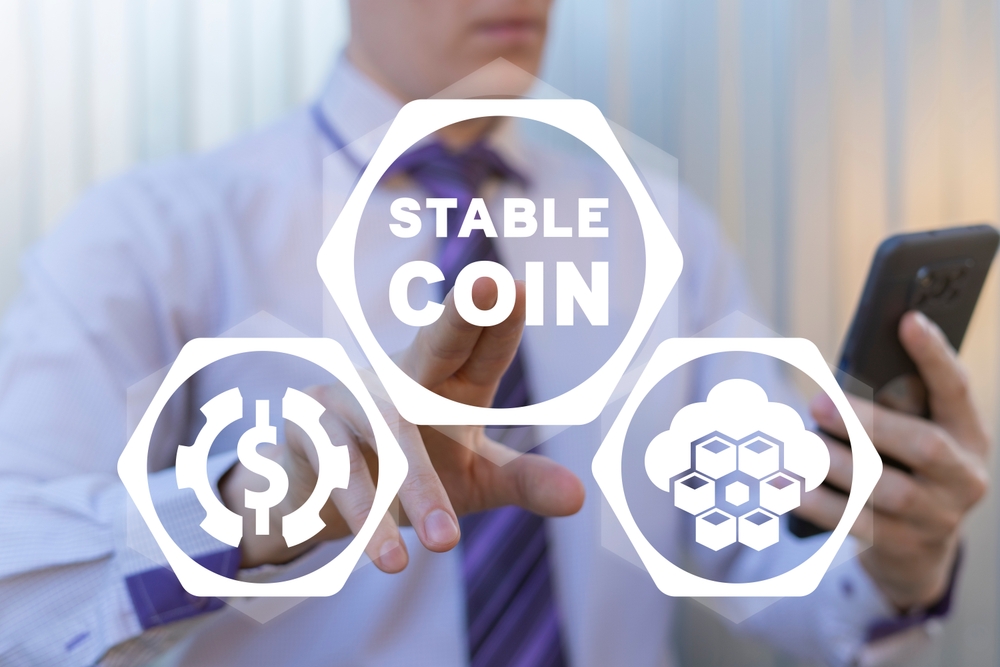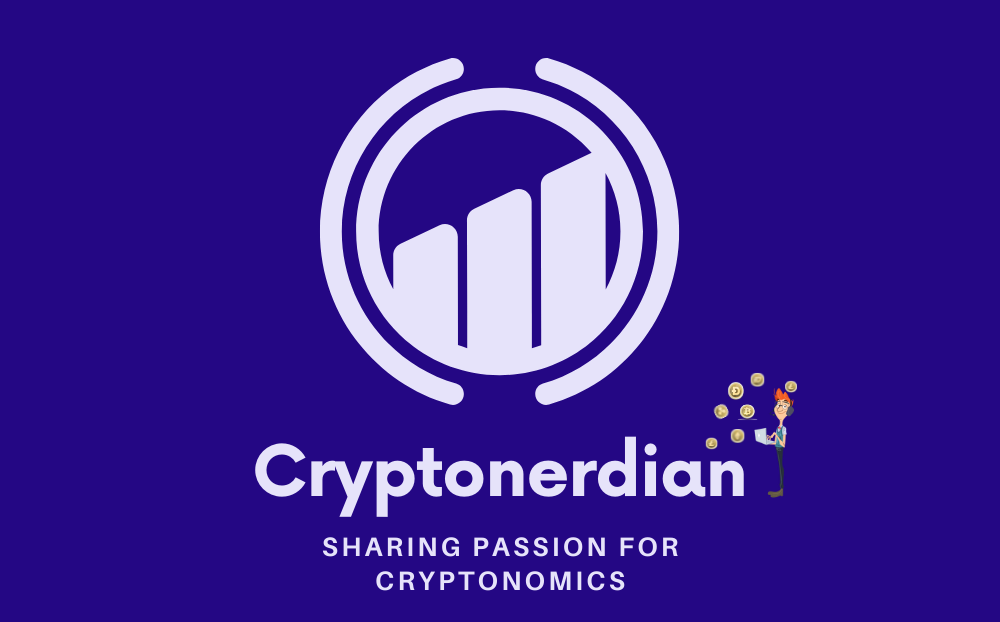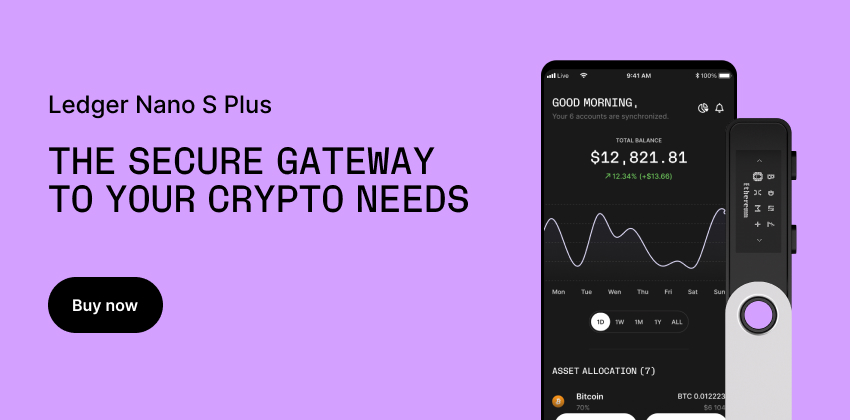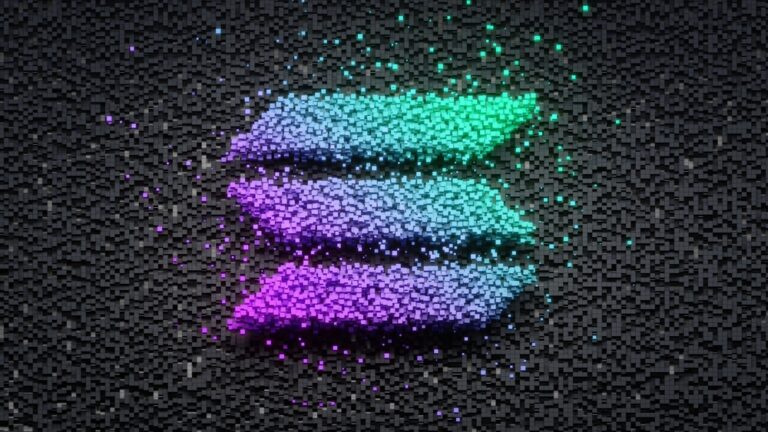Table of Contents
ToggleIntroduction
Chainlink has established itself as a leading decentralized oracle network, providing reliable data feeds to smart contracts on various blockchain platforms, such as Ethereum. Its innovative technology has garnered significant attention within the blockchain ecosystem, resulting in numerous competitors striving to make their mark on this rapidly evolving landscape. This article will delve into the top five Chainlink competitors, comparing their approaches, strengths, and weaknesses in an ever-growing, technology-driven market.

As the importance of interoperability between blockchain platforms and external data sources grows, so too does the need for decentralized oracle networks. These networks serve to bridge the gap between on-chain and off-chain data, a critical capability for a wide array of industries poised to adopt blockchain technology. Examining the top competitors in this space sheds light on the innovative solutions being developed, as well as the potential challenges and opportunities ahead for the entire decentralized oracle market.
Key Takeaways
- A comprehensive understanding of Chainlink and its competitors provides insight into the rapidly evolving decentralized oracle landscape.
- Technological innovation, adoption, and competitive positioning play significant roles in determining the success and growth of each competitor.
- Employee contributions and revenue generation, along with prospects and challenges, factor into the competitive dynamics within this market.
Understanding Chainlink

Chainlink is a decentralized oracle network that allows for smart contracts to securely connect with external data sources, APIs, and various payment systems. The network acts as a bridge between blockchain networks and the outside world, thus enhancing reliability, tamper-proof inputs, and overall functionality of smart contracts.
The key figure behind Chainlink is its co-founder Sergey Nazarov, who envisioned a solution enabling smart contracts to access real-world data without compromising security and decentralization. By design, Chainlink ensures that it is resistant to tampering and manipulation through the use of multiple oracles and data inputs.
At the core of Chainlink’s functionality is the integration of oracle providers, which retrieve and transmit information from the off-chain world to on-chain environments. This integration enables smart contracts to perform complex functionalities, such as calculating insurance payouts based on real-world events or automating prediction market settlements.
Chainlink has carved a significant position in the decentralized finance (DeFi) space with its scalability, security, and forward-looking technology. It provides tamper-proof inputs for major smart contract platforms, ensuring that smart contracts can be created and executed with the utmost confidence in the accuracy and integrity of external data. This enables developers to confidently build trustless applications and services using Chainlink’s oracle network.
In conclusion, Chainlink’s decentralized oracle network brings tremendous value to the blockchain ecosystem, enabling smart contracts to access real-world data securely and trustlessly. As the demands for reliable off-chain data continue to grow, Chainlink’s technology stands as a vital cornerstone in the ongoing evolution of decentralized finance and smart contract platforms.
Top 5 Chainlink Competitors

Chainlink has emerged as a leading decentralized oracle network, but it’s essential to consider its top competitors, contributing to the oracle space with their innovative solutions. Here are the top 5 Chainlink competitors, each offering unique capabilities and features.
1. API3: API3 is an oracle solution that focuses on providing decentralized APIs (dAPIs) for various blockchain projects. API3 aims to improve data security, reduce middlemen, and promote cost-effectiveness for users. With its Airnode technology, API3 enhances the developer experience and facilitates easier integration of oracle solutions into different projects.
2. Band Protocol: In the world of decentralized oracles, Band Protocol has gained attention due to its innovative cross-chain data oracle approach. Band Protocol offers reliable, fast, and customizable data feeds that support multiple blockchains, allowing users to access various data sources. Its flexibility and scalability make it a strong contender in the oracle landscape.
3. Nest Protocol: As a decentralized price oracle network, Nest Protocol focuses on providing secure and accurate price data in real-time for the DeFi sector. Employing a unique mechanism called “Nest Quotation,” the protocol aims to prevent price manipulation and promote transparency within the market. This feature helps create a strong competitive edge over other oracle solutions.
4. Phi Labs: Known for its Gravity solution, Phi Labs enables accurate off-chain data to numerous blockchain platforms. Phi Labs’ Gravity bridges multiple chains, making it an interoperable solution that strengthens cross-chain communication and data sharing. Moreover, the protocol eliminates the need for validators, contributing to its decentralized nature.
5. GOracle: As another decentralized oracle network, GOracle strives to provide accurate data feeds to various blockchain applications. With expertise in cross-chain interoperability, GOracle ensures that developers can easily integrate its solution into their projects. The platform is also known for its focus on user privacy and data security, making it a noteworthy competitor in the oracle sphere.
In conclusion, these top 5 Chainlink competitors offer unique strengths, ranging from cross-chain capabilities and dAPIs to decentralized price oracles and interoperable solutions. As the blockchain ecosystem continues to grow, these competitors contribute to the rapidly evolving oracle landscape, providing valuable alternatives for developers and projects alike.
Comparative Analysis of Competitors
Chainlink has been facing increased competition in the blockchain and smart contract space over the past few years. While Ethereum has been the pioneer in smart contracts, several other blockchain platforms have emerged, such as Bitcoin, Cardano, Solana, Avalanche, Polygon, and Near. This section will provide a brief analysis of these competitors and their relationship to Chainlink.
Ethereum is the second-largest cryptocurrency by market capitalization and has been at the forefront of the smart contract revolution. Its smart contract functionality has been widely used by decentralized finance (DeFi) applications and non-fungible tokens (NFTs). However, Ethereum is facing scalability issues, and therefore competitors like Cardano and Solana are offering alternative solutions.
Cardano is a proof-of-stake blockchain platform that has been designed for higher scalability, security, and energy efficiency. It aims to provide novel features like on-chain governance, which may attract developers and dApps. Cardano also supports Oracle services, making it a potential competitor to Chainlink in the data feed market.
Solana is another contender in the competitive landscape, offering fast and low-cost transactions. It is well-suited for supporting high-volume applications such as DeFi services and NFTs. Moreover, Solana also has an on-chain Oracle service called Pyth Network, which can be seen as a direct competitor to Chainlink’s services.
Bitcoin (BTC), the largest cryptocurrency by market capitalization, does not have native support for smart contracts, but it is important to take it into account for its market share. Projects such as RSK (Rootstock) and Liquid Network aim to bring smart contract functionality to the Bitcoin blockchain, but their adoption remains limited compared to Ethereum and newer platforms.
Avalanche is another notable competitor with a focus on providing highly scalable and interoperable blockchain networks. It supports custom virtual machines, enabling the potential for more advanced smart contracts and dApps. In addition, Avalanche has recently integrated the Chainlink protocol for accessing data feeds.
Polygon (previously known as Matic Network) is a layer 2 scaling solution for Ethereum that enables faster and cheaper transactions. Its interoperable platform supports multiple sidechains and layer 2 solutions, bringing scalability and lower fees to Ethereum-based dApps. Although not a direct competitor to Chainlink, it is worth mentioning that Polygon has integrated Chainlink’s services for providing data feeds.
Near is a relatively new blockchain platform that focuses on simplicity and user experience. Its design is aimed at making it easier for developers to build dApps with a strong focus on usability and security. As with other competitors, Near has also integrated Chainlink oracles for its data feeds, showcasing the widespread adoption and importance of Chainlink’s services in the blockchain ecosystem.
In summary, Chainlink faces competition from multiple platforms that offer scalable, secure, and cost-efficient blockchain networks. Some of these platforms also provide their own Oracle services, making them direct competitors in the data feed market. However, Chainlink has managed to stay relevant by collaborating with and being integrated into numerous blockchain projects, further solidifying its position within the space.
Impact of Technology and Adoption
The emergence of blockchain technology has paved the way for a new era of decentralized applications, with smart contracts being one of the key innovations. Chainlink, as a leading decentralized oracle network, plays a vital role in connecting off-chain data to on-chain smart contracts. Given the growing importance of Chainlink, it is crucial to understand the major competitors in this space and their impact on technology and adoption.
In recent years, many blockchain projects have emerged to challenge Chainlink’s dominance in the decentralized oracle market. Among the top competitors are Band Protocol, Tellor, API3, DIA, and Witnet. These projects have made strides in the development of their respective technologies, while also attracting a significant number of partnerships and adoption within the burgeoning DeFi sector.
Band Protocol focuses on bridging the gap between decentralized applications and off-chain data sources by employing a unique multi-chain oracle design. Its scalable and cross-chain compatibility makes it an attractive option for developers seeking to integrate reliable off-chain data into their smart contracts.
On the other hand, Tellor, a decentralized oracle network built on the Ethereum blockchain, introduces a proof-of-work mining mechanism to secure off-chain data delivery to on-chain smart contracts. This approach ensures a high level of security and reliability, catering to developers’ needs in the expanding DeFi ecosystem.
API3 aims to provide a more direct approach by building decentralized APIs (dAPIs) on top of existing API services. By removing the need for an intermediate oracle node, it reduces the potential attack surface and increases overall reliability.
DIA, another strong competitor, focuses on providing transparent, decentralized, and community-verified price oracles for various digital assets. The project implements a crowd-sourcing model, allowing users to participate in the validation of datasets and enhancing overall data quality.
Finally, Witnet addresses the challenge of data manipulation by implementing a decentralized reputation system. This system establishes a trustless network where data requests and subsequent retrieval are executed by nodes that have established a good track record of delivering accurate results.
In conclusion, each of these competitors offers a unique approach to addressing the challenges faced by decentralized oracle networks. The continuous development of their technologies and growing adoption within the blockchain and DeFi sectors indicate that the competition for dominance in this space is far from over.
Role of Employees and Revenue in Competition
In the emerging world of decentralized finance and blockchain technology, Chainlink faces competition from various players in the industry. A significant factor driving competition among these companies is the talent and expertise of their employees. Skilled professionals with deep understanding of blockchain technology, cryptography, and financial systems play a pivotal role in building innovative and efficient solutions. Companies often try to attract the best talent away from competitors, as experienced personnel bring innovation, technical know-how, and industry knowledge.
Revenue generation is another key factor in determining the competitiveness of Chainlink’s top rivals. As the adoption of decentralized finance (DeFi) solutions grows, the ability of these companies to generate revenue through their platforms, partnerships, and integrations directly corresponds to their market strength. The increasing demand for oracle solutions and smart contracts is driving revenue growth in this space, which in turn, supports further investment in research and development, enhancing the company’s capabilities to develop new and improved solutions.
Payments in the DeFi space often involve the use of both cryptocurrencies and fiat currencies. For instance, some DeFi platforms provide services allowing users to convert cryptocurrencies to fiat currencies, enabling seamless transactions in the global financial ecosystem. The handling of fiat currencies is crucial for DeFi platforms to cater to a wider audience, bridge the gap between traditional finance, and introduce the benefits of blockchain technology to a broader market.
In conclusion, the role of employees and revenue generation in the competitive landscape of Chainlink and its top contenders cannot be overlooked. These factors contribute significantly to innovations and growth in the DeFi and blockchain industry, enabling these companies to build more robust, reliable, and user-friendly platforms. Furthermore, the successful integration and management of fiat currencies in the DeFi space helps attract a more extensive user base and drives wider adoption of blockchain-based solutions.
Future Prospects and Challenges
The future prospects for Chainlink and its top competitors seem promising, as the need for decentralized oracle networks continues to grow. The integration of blockchain technology is expected to revolutionize industries such as graph databases, Li-Fi communication, payment systems, and environmental conservation.
Graph databases stand to benefit from the implementation of decentralized oracle networks. The enhanced security and data validation provided by blockchain technology can bring about significant improvements in how connections between data points are managed and verified.
One of the key challenges in the adoption of blockchain in LiFi communication systems is maintaining the efficiency and speed of data transmission. Blockchain implementations must be carefully designed to ensure that they do not impede the performance of these high-speed communication networks.
Payment systems are poised for significant disruption, as the rise of cryptocurrencies and decentralized finance (DeFi) platforms continues. The integration of blockchain technology has the potential to allow for faster, more secure, and cost-effective payment processing. However, challenges remain in terms of scalability, interoperability, and regulatory compliance.
The adoption of blockchain technology in the environmental sector presents promising opportunities for better decision-making and improved transparency. Applications such as supply chain tracking, air and water quality monitoring, and carbon credit management can all benefit from decentralized oracle networks. However, concerns about energy consumption and the environmental impact of traditional blockchain models must be addressed.
Chainlink and its competitors face the challenge of overcoming technical and non-technical barriers in these sectors while also navigating a rapidly evolving regulatory landscape. Collaboration between industry stakeholders, technological advancements, and standardized protocols will be crucial for the successful integration of blockchain technology and the growth of decentralized oracle networks in these areas.
Frequently Asked Questions
Who are the main alternatives to Chainlink in the oracle space?
Some of the main alternatives to Chainlink in the oracle space include Band Protocol, API3, DIA, and Tellor. These projects offer decentralized oracle solutions that facilitate the flow of real-world data to smart contracts, similar to Chainlink. Each project has its unique approach and design, but all aim to provide accurate, secure, and reliable data to blockchain networks.
How does Polkadot compare to Chainlink?
Polkadot is a decentralized platform that connects multiple blockchains, enabling them to share information and functionality. While Chainlink focuses on providing off-chain data to smart contracts through its decentralized oracle network, Polkadot primarily aims to facilitate interoperability between various blockchains. Although they serve different purposes, both projects share the common goal of enhancing blockchain capabilities and creating a more connected and efficient ecosystem.
What sets API3 apart from Chainlink?
API3 is an oracle project that provides a decentralized API (dAPI) solution for blockchain applications. Its unique features include the use of first-party oracles, which are essentially APIs themselves, and the introduction of the API3 DAO to govern the project. This differs from Chainlink, which primarily focuses on connecting third-party oracles to smart contracts. By offering first-party oracles directly, API3 aims to reduce the risks associated with middlemen and provide more accurate, secure, and cost-effective data.
How does Alchemy Chainlink differ from the original Chainlink?
Alchemy Chainlink is a version of Chainlink that runs on the Alchemy blockchain, a public, decentralized smart-contract platform that aims to enhance blockchain scalability and accessibility. This implementation of Chainlink offers the same decentralized oracle features as the original version, but with potential performance improvements and seamless integration with the Alchemy blockchain. However, it’s worth noting that Alchemy Chainlink is a more specific implementation compared to the original Chainlink, which is designed for broader compatibility with multiple blockchain platforms.
Which competitors pose the biggest threat to Chainlink?
As the decentralized oracle space evolves and expands, multiple projects could emerge as substantial threats to Chainlink. Some of these potential competitors include Band Protocol, API3, DIA, and Tellor, which all offer varying approaches to oracle solutions. Given the rapidly evolving nature of the blockchain industry, it is essential to keep an eye on new projects and emerging solutions that may challenge Chainlink’s dominance in the future.
Is Chainlink the leading oracle solution in the cryptocurrency market?
Currently, Chainlink is considered one of the leading oracle solutions in the cryptocurrency market, boasting a strong community and a growing list of partnerships and integrations. However, it is important to consider the continuous development and innovations happening in this space. As the industry evolves, new projects may challenge Chainlink’s position. Still, for now, Chainlink remains a highly respected and widely adopted solution for decentralized oracles.












